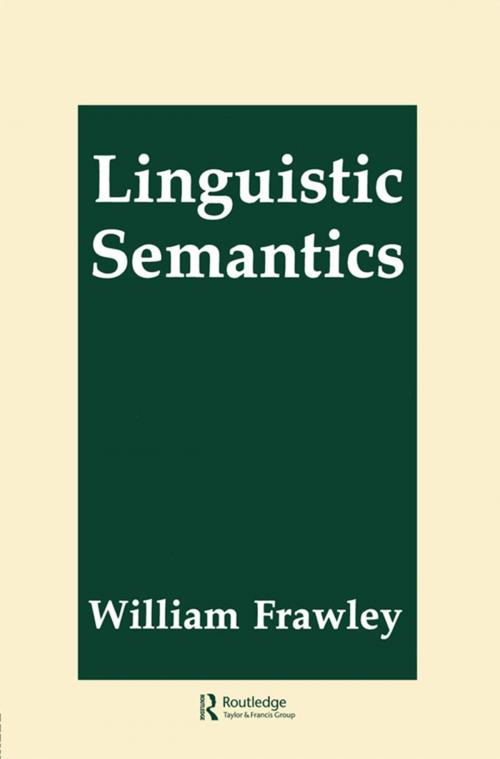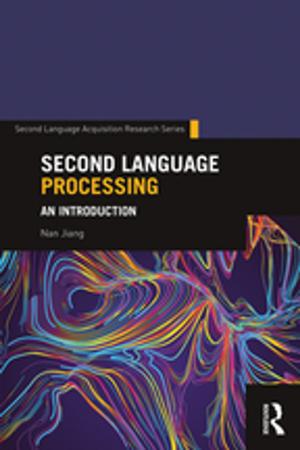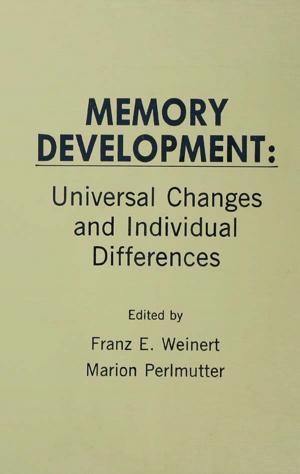Linguistic Semantics
Nonfiction, Reference & Language, Language Arts, Public Speaking, Speech, Linguistics| Author: | William Frawley | ISBN: | 9781135441777 |
| Publisher: | Taylor and Francis | Publication: | November 5, 2013 |
| Imprint: | Routledge | Language: | English |
| Author: | William Frawley |
| ISBN: | 9781135441777 |
| Publisher: | Taylor and Francis |
| Publication: | November 5, 2013 |
| Imprint: | Routledge |
| Language: | English |
This volume is a comprehensive, up-to-date, and readable introduction to linguistic meaning. While partial to conceptual and typological approaches, the book also presents results from formal approaches. Throughout, the focus is on grammatical meaning -- the way languages delineate universal semantic space and encode it in grammatical form.
Subjects covered by the author include: the domain of linguistic semantics and the basic tools, assumptions, and issues of semantic analysis; semantic properties of entities, events, and thematic roles; language and space; tense, aspect, and the internal structure and temporal ordering of events; modality, negation, and the epistemology of the speaker; and modification and attribution. In contrast to most current treatments of semantics, this book is accessible to the beginning student of semantics and linguistics and also useful to the advanced practitioner. A textbook and reference work in a single volume, it can be used in a number of disciplines: psychology, computer science, and anthropology as well as linguistics.
This volume is a comprehensive, up-to-date, and readable introduction to linguistic meaning. While partial to conceptual and typological approaches, the book also presents results from formal approaches. Throughout, the focus is on grammatical meaning -- the way languages delineate universal semantic space and encode it in grammatical form.
Subjects covered by the author include: the domain of linguistic semantics and the basic tools, assumptions, and issues of semantic analysis; semantic properties of entities, events, and thematic roles; language and space; tense, aspect, and the internal structure and temporal ordering of events; modality, negation, and the epistemology of the speaker; and modification and attribution. In contrast to most current treatments of semantics, this book is accessible to the beginning student of semantics and linguistics and also useful to the advanced practitioner. A textbook and reference work in a single volume, it can be used in a number of disciplines: psychology, computer science, and anthropology as well as linguistics.















